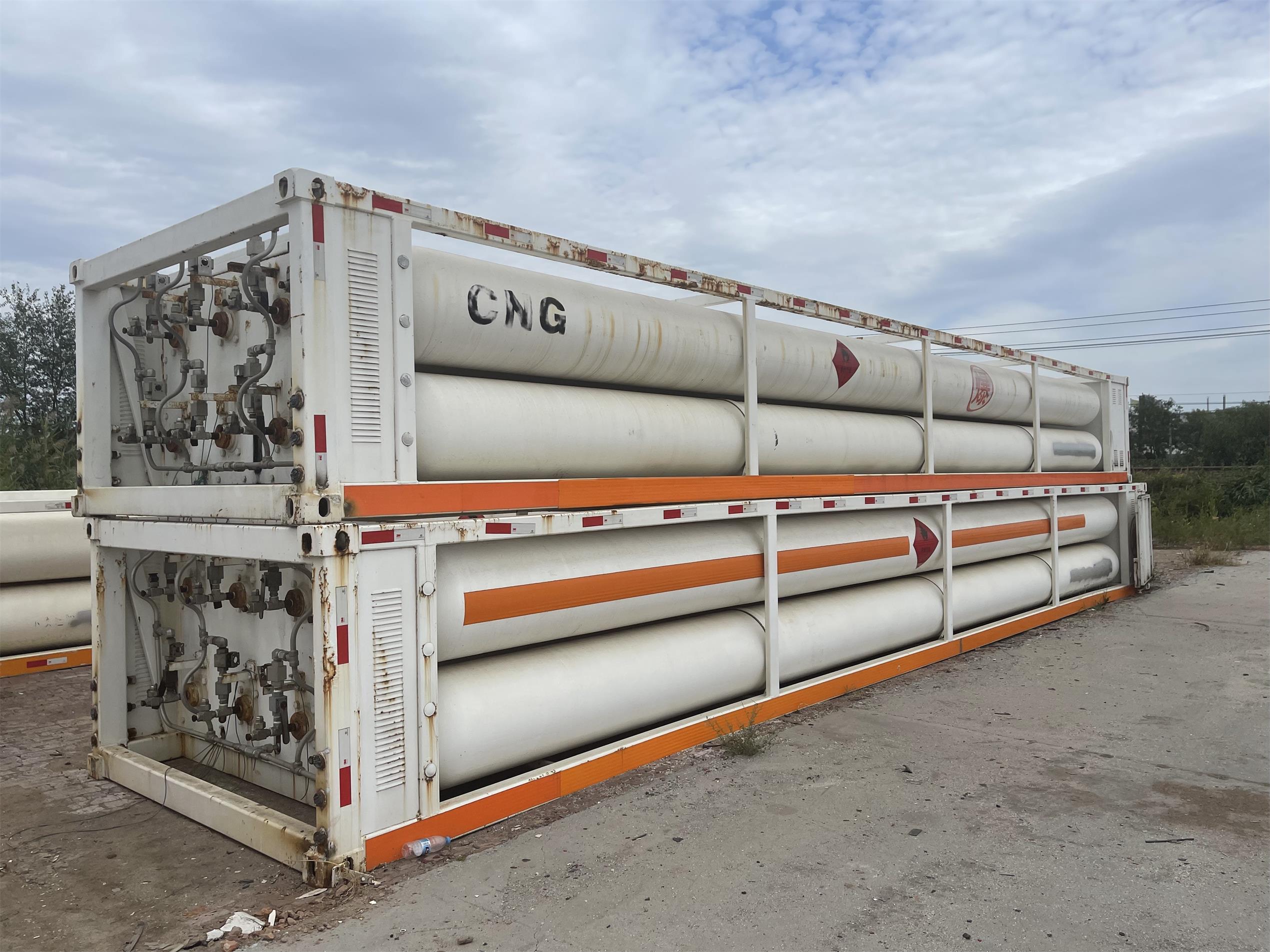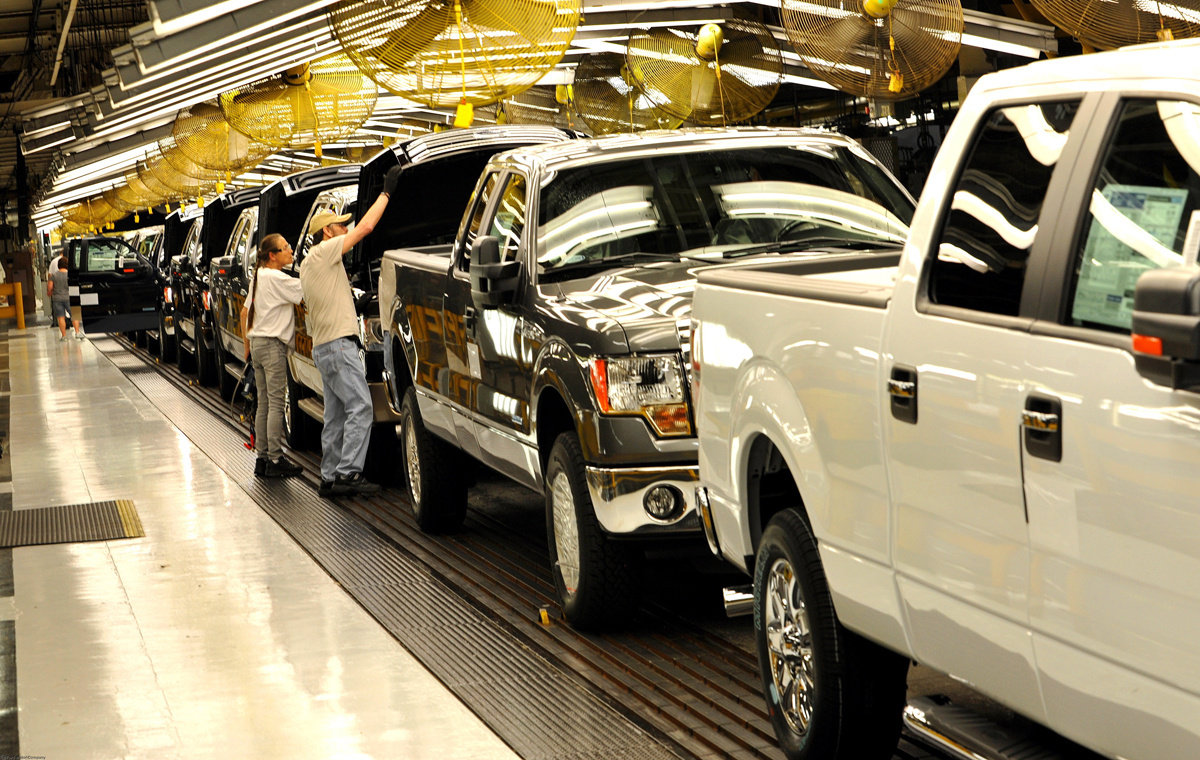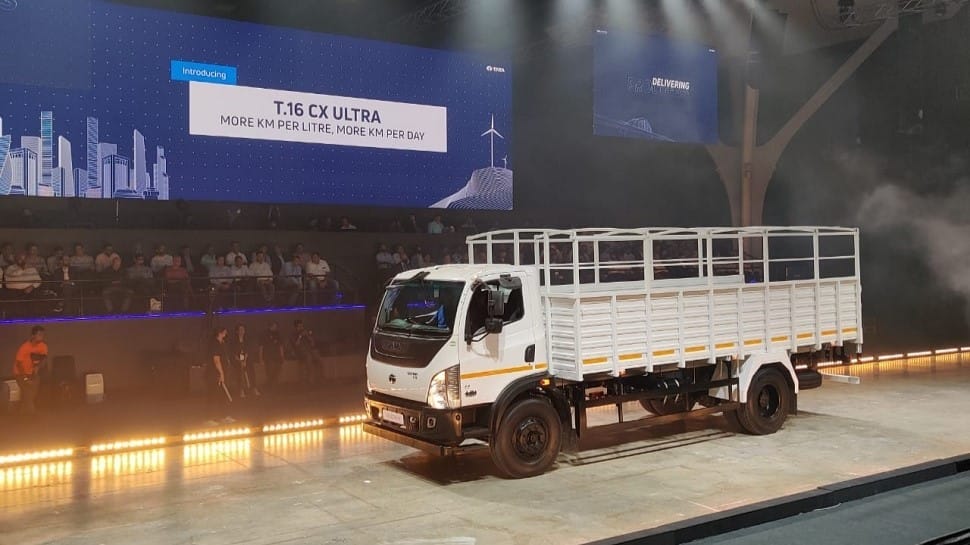CNG Trucks For Sale California: Your Comprehensive Guide to Cleaner, Greener Fleets types.truckstrend.com
California, a pioneer in environmental stewardship, has long been at the forefront of promoting sustainable transportation. For businesses and individuals operating vehicles in the Golden State, this commitment translates into increasingly stringent emissions regulations and a strong push towards cleaner alternatives. Among these alternatives, Compressed Natural Gas (CNG) trucks have emerged as a robust, cost-effective, and environmentally friendly solution, offering a compelling proposition for those seeking to reduce their carbon footprint and operating costs.
This comprehensive guide delves into the world of CNG trucks for sale in California, providing essential information, practical advice, and insights for anyone considering this transformative investment. From understanding the underlying benefits to navigating the market and securing financing, we aim to equip you with the knowledge needed to make an informed decision.
CNG Trucks For Sale California: Your Comprehensive Guide to Cleaner, Greener Fleets
The Rise of CNG in California: A Green Fleet Imperative
California’s commitment to clean air is embodied in the regulations set forth by the California Air Resources Board (CARB). These regulations, among the strictest globally, mandate significant reductions in vehicle emissions, driving businesses and fleets to seek out cleaner fuel options. CNG, with its inherently lower emissions profile compared to gasoline and diesel, fits perfectly within this regulatory landscape.
CNG trucks produce significantly fewer greenhouse gas emissions, particulate matter, and nitrogen oxides (NOx) – key contributors to smog and respiratory issues. This makes them a preferred choice for companies aiming for compliance, corporate social responsibility, and a cleaner operational image. Furthermore, California has actively supported the adoption of natural gas vehicles through various incentives and the development of a robust fueling infrastructure, making the transition to CNG more accessible and economically viable than ever before.
Benefits of Owning a CNG Truck in California
Investing in a CNG truck in California offers a multitude of advantages that extend beyond mere regulatory compliance:
-
Environmental Advantages:

- Reduced Emissions: CNG combustion produces up to 25% less CO2, 95% less carbon monoxide, and significantly lower NOx and particulate matter compared to conventional fuels. This directly contributes to cleaner air and helps meet CARB standards.
- Quieter Operation: CNG engines are notably quieter than their diesel counterparts, reducing noise pollution, particularly beneficial for urban operations and nighttime deliveries.
-
Economic Savings:
- Lower Fuel Costs: Historically, CNG has been significantly cheaper per gallon equivalent than gasoline or diesel, leading to substantial savings on fuel expenses over the lifetime of the vehicle. Natural gas prices tend to be more stable and less susceptible to global oil price fluctuations.
- Incentives and Grants: California offers numerous state and local incentives, grants (e.g., Carl Moyer Program, HVIP), and tax credits that can significantly offset the higher upfront cost of CNG vehicles, making the total cost of ownership (TCO) highly competitive.
- Extended Engine Life: CNG burns cleaner, resulting in less carbon buildup and wear on engine components, potentially leading to lower maintenance costs and longer engine life.

-
Operational Advantages:
- Reliable Fueling Infrastructure: California boasts one of the most developed CNG fueling networks in North America, with numerous public and private stations ensuring convenient refueling options for fleets across the state.
- Energy Security: Natural gas is an abundant domestic resource, reducing reliance on foreign oil and enhancing national energy security.
-
Regulatory Compliance:
- CARB Compliance: Operating CNG vehicles helps fleets meet and exceed California’s stringent emissions regulations, avoiding potential penalties and ensuring long-term operational viability in the state.

Types of CNG Trucks Available for Sale in California
The market for CNG trucks in California is diverse, catering to various operational needs and budgets:
- New CNG Trucks: Major truck manufacturers like Freightliner, Kenworth, Peterbilt, Mack, Volvo, and Ford offer a range of factory-built CNG models across light, medium, and heavy-duty segments. These vehicles come with full manufacturer warranties and the latest technology.
- Used CNG Trucks: A robust secondary market exists for pre-owned CNG trucks, often coming from large fleets upgrading their vehicles. These can offer significant cost savings while still providing the environmental and economic benefits of CNG.
- OEM vs. Aftermarket Conversions:
- OEM (Original Equipment Manufacturer) CNG Trucks: These are built by the vehicle manufacturer with CNG as the primary fuel from the factory. They are fully integrated and optimized for CNG operation.
- Aftermarket Converted CNG Trucks: Some gasoline or diesel trucks can be professionally converted to run on CNG. While potentially cheaper upfront, it’s crucial to ensure the conversion is performed by certified technicians using CARB-compliant systems and that all necessary certifications are in place.
- Vehicle Types:
- Light-Duty: CNG options are available for pickup trucks (e.g., Ford F-150, Ram 2500/3500) and cargo vans (e.g., Ford Transit, Chevy Express), suitable for small businesses, utility companies, and delivery services.
- Medium-Duty: This segment includes box trucks, delivery trucks, and stake beds (e.g., Freightliner M2, Hino, Isuzu), popular for local and regional distribution.
- Heavy-Duty: Refuse trucks, transit buses, vocational trucks, and Class 8 semi-tractors (e.g., Peterbilt 320, Kenworth T880, Freightliner Cascadia) are widely available in CNG, serving large commercial fleets and municipalities.
- Fuel System Types:
- Dedicated CNG: These vehicles run solely on Compressed Natural Gas.
- Bi-Fuel CNG: These vehicles can operate on either CNG or gasoline (for light-duty) or CNG or diesel (for heavy-duty), offering flexibility and extended range, though less common for heavy-duty applications.
Navigating the Market: Where to Find CNG Trucks for Sale in California
Finding the right CNG truck requires exploring various avenues:
- Specialized Dealerships: Many commercial truck dealerships in California now specialize in or have dedicated departments for alternative fuel vehicles, including CNG. They offer new and sometimes certified used models.
- Online Marketplaces: Websites like CommercialTruckTrader.com, TruckPaper.com, MyLittleSalesman.com, and even general classifieds like Craigslist or eBay Motors (for lighter duty) often list CNG trucks.
- Fleet Auctions and Liquidations: Large fleets (municipalities, refuse companies, parcel delivery services) frequently auction off their older CNG vehicles as they upgrade. These can be excellent sources for well-maintained used trucks.
- Direct from Fleets: Some companies may sell off their surplus CNG trucks directly. Networking within industry groups can uncover these opportunities.
- Brokerages: Commercial vehicle brokers often have access to a wider inventory of new and used CNG trucks.
Key Considerations When Buying a CNG Truck in California
Purchasing a CNG truck, especially a used one, requires careful consideration:
- Budget and Total Cost of Ownership (TCO): While fuel savings are significant, factor in the purchase price (potentially higher upfront), maintenance costs, insurance, and the availability of incentives to calculate the true TCO.
- Vehicle Condition (Especially Used):
- CNG Fuel System Inspection: This is paramount. Ensure the high-pressure CNG tanks are within their certification period (typically 15-20 years, with required periodic visual inspections). Check for leaks, damage, or corrosion on lines and components. Request maintenance records specific to the CNG system.
- Engine and Transmission: Standard mechanical inspection applies.
- Brakes, Tires, and Suspension: Crucial for safety and operational efficiency.
- Maintenance and Servicing: Ensure you have access to qualified technicians trained in CNG vehicle maintenance. While many standard components are the same, the fuel system requires specialized knowledge and tools.
- Fueling Infrastructure: Map out the public CNG stations along your typical routes. If you have a large fleet, consider the feasibility of installing a private fueling station.
- Payload and Range Requirements: CNG tanks are heavier and take up more space than traditional fuel tanks, which can impact payload capacity. Consider the vehicle’s range on a full tank relative to your operational needs.
- Regulatory Compliance: Verify that any used CNG truck or aftermarket conversion is fully CARB compliant and has all necessary documentation and certifications for operation in California.
- Resale Value: While demand for CNG trucks is growing, the niche market can sometimes affect resale value. However, their environmental benefits and fuel savings can still make them attractive.
Financing and Incentives for CNG Trucks in California
California is one of the best states to purchase a CNG truck due to the robust incentive programs available:
- California Air Resources Board (CARB) Programs:
- Hybrid and Zero-Emission Truck and Bus Voucher Incentive Project (HVIP): Provides point-of-sale vouchers to reduce the cost of eligible clean trucks and buses.
- Carl Moyer Memorial Air Quality Standards Attainment Program: Offers grants for cleaner-than-required engines, vehicles, and equipment.
- Low Carbon Fuel Standard (LCFS): Generates credits for low-carbon fuels like biomethane, which can be monetized and passed on to users through lower fuel prices.
- Local Air District Programs: Many regional air quality management districts in California offer their own incentive programs. Check with your local district (e.g., South Coast AQMD, Bay Area AQMD) for specific grants.
- Federal Tax Credits: While often less direct for commercial vehicles, some federal tax credits or depreciation benefits may apply. Consult a tax professional.
- Leasing and Loan Programs: Traditional commercial vehicle financing and leasing options are available from banks and specialized lenders. Some may offer favorable terms for alternative fuel vehicles.
It is crucial to research and apply for these incentives before purchase, as many are structured as pre-approved vouchers or grants.
Potential Challenges and Solutions
While beneficial, CNG trucks do come with a few considerations:
- Higher Upfront Cost: New CNG trucks often have a higher sticker price than comparable diesel models.
- Solution: Leverage the significant state and federal incentives available, and consider the long-term fuel savings and TCO.
- Limited Range (Compared to Diesel): While improving, CNG trucks may have a shorter range than diesel equivalents due to tank size and fuel density.
- Solution: Plan routes around available fueling stations, and consider larger tank configurations or bi-fuel options if range is a critical concern.
- Fueling Time: Refueling a CNG truck takes slightly longer than liquid fuels, but significantly less time than fully recharging an electric vehicle.
- Solution: Incorporate fueling time into operational schedules. Fleets with private stations can optimize this process.
- Maintenance Specialization: Finding technicians experienced with CNG systems can be a challenge in some areas.
- Solution: California has a growing network of certified repair facilities. Partner with reputable dealerships or service centers, and consider in-house training for your mechanics if you operate a large fleet.
Practical Advice and Actionable Insights
- Do Your Homework: Thoroughly research the specific models, their performance data, and real-world fuel economy.
- Inspect Thoroughly: For used trucks, a pre-purchase inspection by a certified CNG mechanic is non-negotiable.
- Understand TCO: Look beyond the purchase price. Factor in fuel savings, maintenance, and potential incentives to calculate the true long-term cost.
- Leverage Incentives: Actively pursue all eligible state and local grants and tax credits. This can dramatically improve your ROI.
- Assess Fueling Needs: Ensure convenient access to CNG stations along your regular routes.
Concluding Summary
The landscape for commercial transportation in California is rapidly evolving, driven by a powerful commitment to environmental sustainability. CNG trucks stand out as a proven, pragmatic, and economically sound solution for businesses looking to navigate this change. By offering substantial fuel cost savings, significant emissions reductions, and access to a robust incentive framework, CNG vehicles present a compelling pathway to a cleaner, more efficient fleet. For anyone considering "CNG Trucks For Sale California," the time is ripe to embrace this greener alternative and contribute to a healthier future while bolstering your bottom line.
CNG Trucks For Sale California: Estimated Price Range Table
Please note: Prices are highly variable based on vehicle make, model, year, condition, mileage, features, and the specific market conditions at the time of purchase. The ranges below are estimates and should be used as a general guide. New vehicle prices often do not include potential incentives, which can significantly reduce the net cost.
| Vehicle Type | Condition | Estimated Price Range (USD) | Key Features / Notes |
|---|---|---|---|
| Light-Duty Pickups/Vans | New | $45,000 – $75,000+ | Factory-built Ford F-150/F-250, Ram 2500/3500, Ford Transit, Chevy Express. Includes full warranty. |
| Used | $15,000 – $40,000 | Typically 3-7 years old, fleet-maintained, potentially higher mileage. Verify CNG tank certification. | |
| Medium-Duty Box/Delivery Trucks | New | $80,000 – $150,000+ | Freightliner M2, Hino, Isuzu, Peterbilt 337. Chassis only; body (box, flatbed) adds to cost. |
| Used | $30,000 – $80,000 | Common from parcel, beverage, or food service fleets. Check engine hours and maintenance records. | |
| Heavy-Duty Refuse Trucks | New | $200,000 – $350,000+ | Peterbilt 320, Mack LR, Freightliner M2. Highly specialized, often custom-built. |
| Used | $70,000 – $180,000 | Ex-municipal or private waste hauler fleets. Verify hydraulic systems and compaction unit condition. | |
| Heavy-Duty Tractor Trucks | New | $180,000 – $300,000+ | Freightliner Cascadia, Kenworth T680/T880, Peterbilt 579/520, Volvo VNL. For long-haul or regional hauling. |
| Used | $60,000 – $150,000 | Common from large trucking companies. Look for good engine and transmission health. | |
| Aftermarket Conversions | Used | $10,000 – $30,000 (Conversion Cost) | Price varies heavily by base vehicle cost + conversion kit & installation. Ensure CARB-certified system & installer. |
| CNG Fuel Cost (CA) | N/A | $2.00 – $3.50 per GGE | (Gasoline Gallon Equivalent) Varies by station, region, and market conditions. Generally lower than gasoline/diesel. |
Note: GGE (Gasoline Gallon Equivalent) is the amount of CNG that has the same energy content as one gallon of gasoline.
Frequently Asked Questions (FAQ) about CNG Trucks in California
Q1: Is CNG safe?
A1: Yes, CNG is a very safe fuel. It is lighter than air, so it dissipates quickly into the atmosphere if a leak occurs, unlike gasoline or diesel which pool. CNG fuel systems are built to rigorous safety standards, including high-strength storage tanks and multiple safety devices.
Q2: How does CNG range compare to gasoline/diesel?
A2: Generally, CNG trucks have a shorter range than comparable diesel or gasoline trucks due to the lower energy density of CNG and the space constraints of the fuel tanks. However, tank technology is improving, and the extensive fueling infrastructure in California helps mitigate this. Many heavy-duty CNG trucks offer ranges of 300-500 miles.
Q3: Where can I refuel a CNG truck in California?
A3: California has the most developed public and private CNG fueling infrastructure in the United States. Stations are located throughout major metropolitan areas and along key freight corridors. Websites and apps like CNGNow.com or the Alternative Fueling Station Locator (afdc.energy.gov) can help you find stations.
Q4: Are CNG trucks more expensive to maintain?
A4: Not necessarily. While the CNG fuel system requires specialized training for technicians and periodic tank inspections, the cleaner-burning nature of CNG can lead to less engine wear, reduced oil changes, and extended spark plug life, potentially offsetting some of the specialized maintenance costs. Overall maintenance costs can be comparable or even lower over the vehicle’s lifespan.
Q5: What incentives are available for buying CNG trucks in California?
A5: California offers a range of incentives, including state grants like the Hybrid and Zero-Emission Truck and Bus Voucher Incentive Project (HVIP), the Carl Moyer Program, and various regional air district programs. These can significantly reduce the upfront purchase cost. It’s crucial to research and apply for these programs as they often have specific eligibility criteria and application windows.
Q6: Can I convert my existing gasoline or diesel truck to CNG?
A6: Yes, it is possible to convert some existing gasoline or diesel trucks to run on CNG. However, for use in California, any conversion must be performed by a certified installer using a CARB-compliant conversion system to meet the state’s stringent emissions standards. It’s often more straightforward and reliable to purchase a factory-built CNG vehicle or a professionally converted vehicle that is already certified.
Q7: What is the lifespan of a CNG fuel tank?
A7: CNG fuel tanks typically have a lifespan of 15 to 20 years, depending on the tank type and manufacturer specifications. They are subject to mandatory periodic visual inspections (e.g., every 3 years for some types) and a full requalification or replacement at the end of their certified life. This is a critical safety and compliance aspect to consider, especially when buying used CNG trucks.
